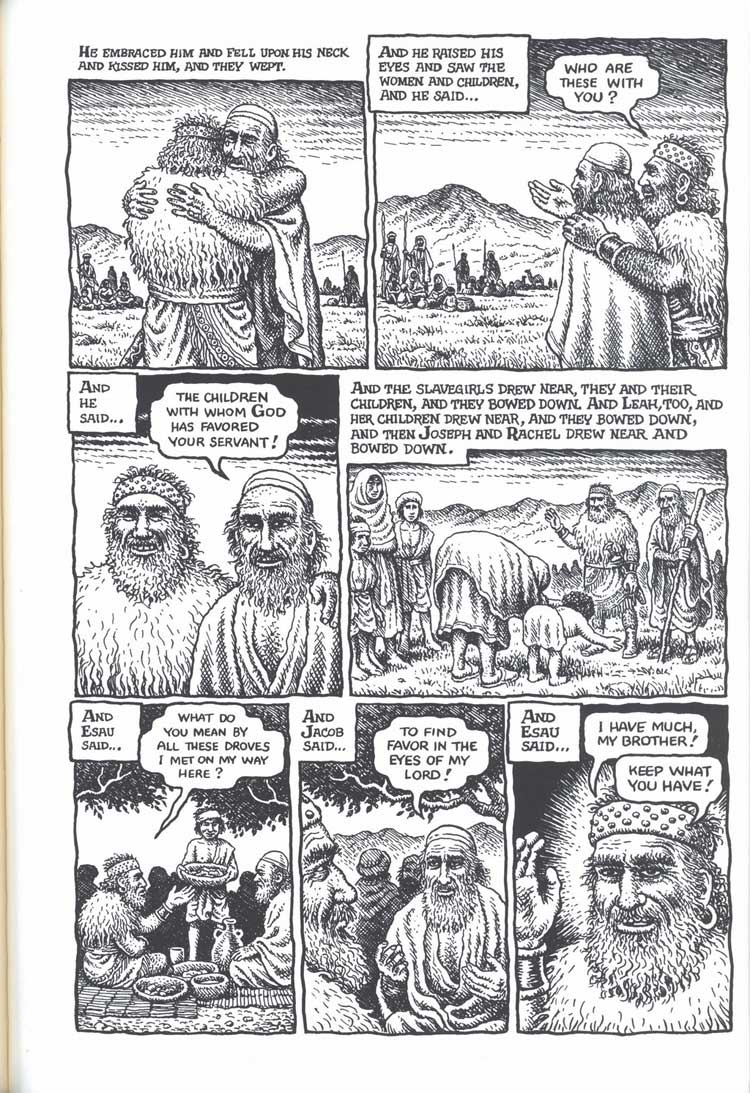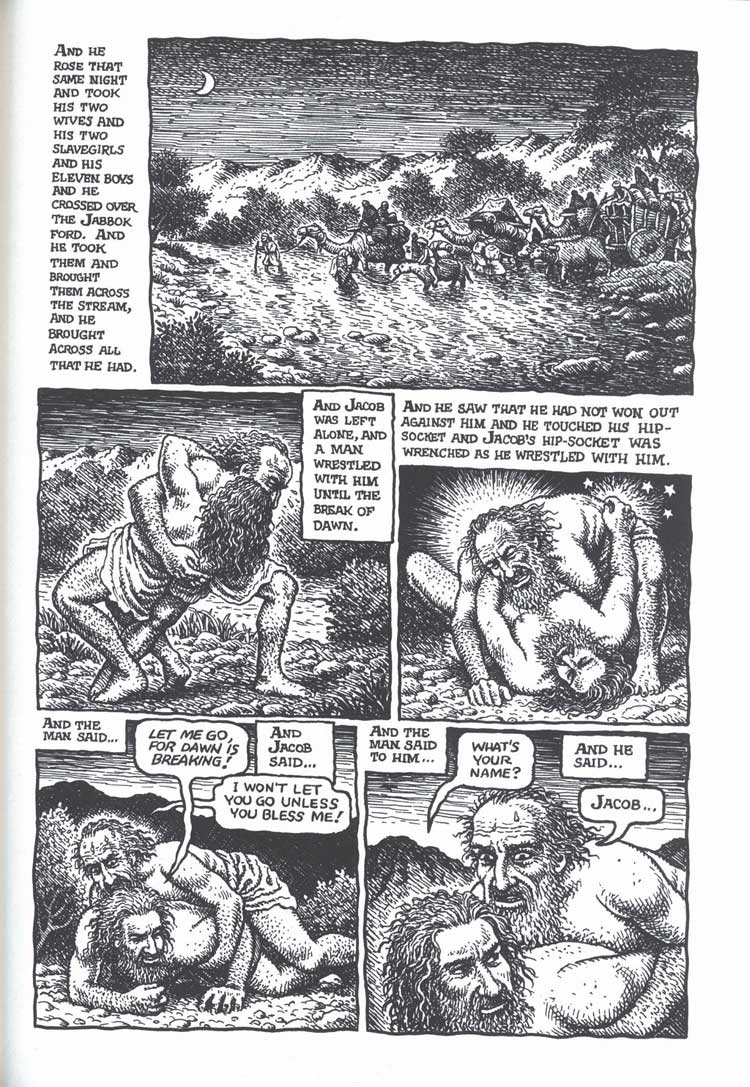RABBI ARTHUR SEGAL: CHUMASH CANDESCENCE : PARASHA VAYEITZEI : GENESIS 28:10-32:03
RABBI ARTHUR SEGAL: CHUMASH CANDESCENCE: PARASHA VAYEITZEI;
GENESIS 28:10-32:03
CHUMASH CANDESCENCE
PARASHA VAYEITZEI
GENESIS 28:10-32:03
RABBI ARTHUR SEGAL
Jewish Renewal www.jewishrenewal.info
Jewish Spiritual Renewal
Jewish Spirituality
Eco Judaism
Hilton Head Island, SC, Bluffton, SC, Savannah, GA
"Earth Angel"
SYNOPTIC ABSTRACT:
Jacob goes to his uncle Laban's home to escape Esau. He falls in love with Rachel and works seven years for her. Laban tricks Jacob, and he marries Leah. Jacob protests and a week later he marries Rachel, but works seven more years for her. Leah has six sons and a daughter. Their maids, whom they marry to Jacob, each have two sons. Rachel finally gives birth to Joseph. Jacob now has eleven sons, one daughter, and four wives.
Our Torah portion gets its name, Veyeitzei ("departed"), from the first words of verse 28:10 in Genesis. Jacob departs and travels to his uncle Laban's home. Rashi says that the Torah could simply state that Jacob went to Laban's home and not use the word "depart." Rashi says," a righteous person's departure from a place leaves a void. As long as this person lives in a city, he constitutes its glory, its splendor, and its beauty. When he departs, its glory, splendor, and beauty depart with him."
Night arrives, and Jacob arranges stones "around his head." He dreams of a "ladder set earthward and its top reached heavenward...and angels of God were ascending it and descending on it"(Gen. 28:12). When Jacob awakes he says,"surely God is present in this place and I did not
know...and he named that place Beth-El (house of God)"(Gen. 28:16-19). He "took the stone (NB: singular) that he placed around his head and set it up as a pillar."
The Midrash notes that first the Torah says that Jacob took stones (plural) for his pillow. But in the morning he took the stone (singular) that was his pillow to make an altar. The Midrash says that the stones quarreling because each one wanted to be the top stone on which Jacob's head would rest. God got tired of their quarreling, and I suppose so did Jacob, as who could fall asleep on a noisy pillow? God fused all the stones into one big stone.
The sages teach some interesting lessons from this. People should not vie and quarrel politically for leadership in the Jewish community. All members of the community need to be combined as one unit. All members of the community who wish to participate should be allowed to. The rabbis also teach that there were twelve stones that were combined as one. They say that each of the twelve tribes had its own customs. Each was unique and each had its own mission. Israel was at its greatest when all Jews were united as one, and differences were not used
for divisiveness.
The rabbis of the Midrash also have different interpretations of the dream of the ladder. One says the ladder is Mt. Sinai, as the numerical value of the letters of the Hebrew for ladder (sulahm) and Sinai are both 130. The angels represent Moses and Aaron who will bring Torah from God in heaven to earth. The Midrash says that if Jews obey the Torah, they will ascend. If Jews do not obey Torah, they will descend. A second interpretation is that Jacob was shown the guardian angels of the four kingdoms that will dominate Israel in the future. Each of these angels
climbed a number of rungs equal to the number of years its conquering nation would control Israel. The Babylonian angel went up 70 rungs and then came down. The Median-Persian angel went up 52, and the Greek angel went up 130. The Roman angel went up and never came down. This frightened Jacob which is why God reassured him that he will return to
the promised land (28:15). If the Midrash was written today, the sages would have said the Roman angel went up 1941 rungs before it descended.
A third Midrashic interpretation says that the angels who protected Jacob while he was in the promised land went up to heaven, and lesser angels came back down. These angels will escort Jacob while he lives with Laban. This also taught Jacob that the land of Israel was holier than any other place. Ramban (Nachmanides of 13th-century Spain) interprets the dream as God's agents carrying out God's orders. They need to go back to
heaven to continually get new commands. The Ramban says that this means that Jacob and his future nation would continually be at God's command to follow His orders.
Our sages miss some interesting points which are important to us as liberal Jews. Jacob awakes and realizes that God was in this place. The Hebrew word for place is "makom." One of God's names is "Makom." Jacob, after having the dream, realizes that God is there with him. The verse says "I did not know." Prior to the dream, Jacob did not know that God was with him. But Jacob does not take a philosophical leap, as his grandfather Abraham did. He calls this place God's house and makes an altar. The Talmud says this place was Mount Moriah, the same place that
Abraham binds Isaac. The Talmud also says that this place will become the Temple Mount in Jerusalem. Jacob still thinks of God as being in a particular place.
The Talmudic sages follow suit two millennia later and
devote Tractates of Talmud to the ritual sacrifices which will partially resume when the Temple is rebuilt. The prophets later condemn the altars of Beth-El and even the Torah outlaws stone markers to show where God "lives" (Ex. 23:24, Lev. 26:1, Deut. 16:22). Jacob and the sages therefore, miss the point of the dream.
God is always with us . God and heaven are not at the top of the ladder. The Torah says that God was down on earth with Jacob. "God was standing over him"(Gen. 28:13). God was not on the top rung. God was not floating like a figure in a Chagall painting. God was standing on terra firma.
Each of us as Jews must ascend our own spiritual ladders. Angels do not come down to us. We must go up first. And what happens when we go up the ladder? We plateau and reach a comfort zone. The ladder is reset on this level. And then we repeat the process. It is never ending.
Our province is on Earth. God is with us everywhere and in every place. It is our responsibly as Jews to seek him by climbing. Climbing a ladder is not easy. It takes balance, skill, coordination, dexterity, and strength. Reaching God takes work. And when we have reached one spiritual plane, we are to incorporate that learning into our daily existence. And then the
process of growth begins anew.
As Jews, we can never rest on our laurels. When we finish a religious text, and make a blessing, we immediately start a new book. When we finish the Torah on Simchat Torah, we
immediately start reading Genesis.
Judaism is an active religion. It is not a religion of a faithful acceptance of a creed. It is a religion that stresses not the mezuzah on the door, but the learning and love of God
and each other that goes on behind that door. It is not a religion of being spoon fed once a Sabbath from the bimah. We are commanded to continually study. Angels do not come from heaven to us. We have to climb that ladder first. But when we reach out to find God, we will find that He has been here with us all along with His hand outstretched, ready to grab onto ours.
This idea is reiterated at the end of the Torah portion. "When Jacob went on his way, angels of God encountered him"(Gen. 23:2). Jacob decided to leave Laban's camp after twenty years to continue his service to God. Jacob made the first move. When he did, the Torah says that God came out to greet and accompany him.
Many times, we as liberal Jews are afraid to experience God or to increase our spirituality. Maybe we think folks will think we are becoming orthodox and call us "too Jewish." Maybe it is because we do not know what paths to take to do this. The prophet Hosea (11:7-14:10) sees this same fear during his time in the 8th-century BCE. "My people is unsure about returning to Me...but it does not rise."
Start with sincere quiet prayer and reflection. Continue by reading a Jewish book. Take another step with weekly Torah study. Set aside time each week for doing good deeds to those less fortunate. Make an appointment and speak with
your rabbi. Study and discuss theology with a friend, your spouse, or an on-line class. Closeness to God will come. "Whoever is wise will consider these words. He who is prudent will take note of them. The paths of God are smooth. The righteous walk in them" (Hos. 14:10). Enjoy the process!
Shabbat Shalom,
RABBI ARTHUR. SEGAL
Jewish Renewal www.jewishrenewal.info
Jewish Spiritual Renewal http://rabbiarthursegal.blogspot.com
Jewish Spirituality
Eco Judaism
facebook.com/RabbiArthurSegalJewishSpiritualRenewal
Hilton Head Island, SC, Bluffton, SC, Savannah, GA














